Showing 1-10 of 159 results
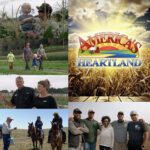
Farming Strategies for Adapting to Extreme Weather
SARE partnered with PBS KVIE to produce an episode of RFD-TV's America's Heartland that highlights how farmers and ranchers across the United States are using sustainable and regenerative practices to adapt to increasingly challenging and unpredictable weather conditions. Adapting to Flooding and Drought on Hurricane Flats Farm in South Royalton, Vermont Ashley Loehr and Antoine […]
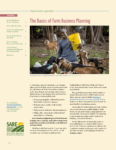
The Basics of Farm Business Planning
Sustainable farming and ranching means taking care of the land, the environment, people and the community, while the farm business makes a profit. Many farmers and ranchers choose sustainable farming and ranching as a lifestyle that reflects their values. Common goals include: Farm business planning is critical because it helps you to identify and achieve […]
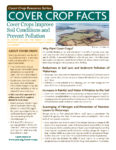
Ecosystem Services from Cover Crops
The Ecosystem Services from Cover Crops resources found on this page include a series of fact sheets, three infographics and one PowerPoint slide set. Together, these resources address the role of cover crops in nutrient management, erosion, infiltration, soil organic matter, supporting wildlife and beneficial insects, and carbon sequestration. They are available for use by educators, […]

Cover Crop Image Library
Images, Illustrations and Presentations This page includes free resources educators and farmers can use in outreach and educational activities related to cover crops. Available resources include a database of cover crop images, ready-made PowerPoint presentations on cover crop topics, and soil health illustrations. Cover Crop Image Library The SARE Cover Crop Image Library is hosted […]
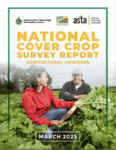
National Cover Crop Survey Reports
The cover crop survey is conducted by the Conservation Technology Information Center (CTIC) in conjunction with SARE and the American Seed Trade Association (ASTA). Sponsors within ASTA include Agassiz Seed, Ampac Seed Company, Beck’s Hybrids, Grassland Oregon, Green Cover Seed, La Crosse Seeds, Mountain View Seeds, ProHarvest Seeds and Seedway.
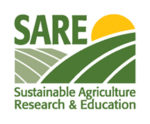
SARE Project Impacts: 2016-2023
In 2023, the SARE National Reporting, Coordination, and Communications Office (NRCCO) contracted with Insight for Action to conduct a post-project evaluation of four of SARE's regional grant programs. The purpose of the evaluation was to characterize key impacts made by SARE’s grantmaking from 2016 through 2023. The evaluation employed the Success Case Method (SCM) to […]
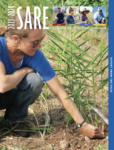
2023–2024 Report from the Field
SARE grants havehelped our viabilityas a business anddemonstrated thatsmall businessescan make a positiveimpact on theenvironment when wedevelop relationshipswith each other forthe benefit of all. Jeanine SeabrookGlass Rooster Cannery Letter from the Director I have always appreciated the value of long-term research as well as the long-term impact of both applied and basic research. The core […]
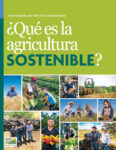
¿Qué es la Agricultura Sostenible?
Una forma sencilla de pensar en la agricultura sostenible es que implica producir suficientes alimentos y fibra para satisfacer las necesidades actuales sin comprometer la capacidad de las generaciones futuras para hacer lo mismo. Los agricultores y ganaderos que valoran la sostenibilidad adoptan tres objetivos comunes mientras llevando a cabo operaciones productivas: Para lograr estos […]
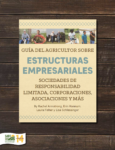
Guía del Agricultorn Sobre Estructuras Empresariales
Establecer y mantener la correcta estructura empresarial para la operación de su granja sienta las bases para un negocio agrícola estable y resiliente. La formación de una estructura empresarial puede ayudar a i) gestionar el riesgo mediante la protección de los activos de las personas propietarias ante las responsabilidades de la empresa; ii) promover las […]
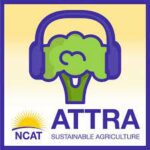
Growing New Markets for Specialty Crops
Voices from the Field is a podcast series co-produced by ATTRA and SARE that explores the different ways farmers are working to create new local markets for specialty and niche crops. Each partner episode will address a different production system or crop–from endives to small-grain value chains–and will feature farmers sharing their production and marketing […]